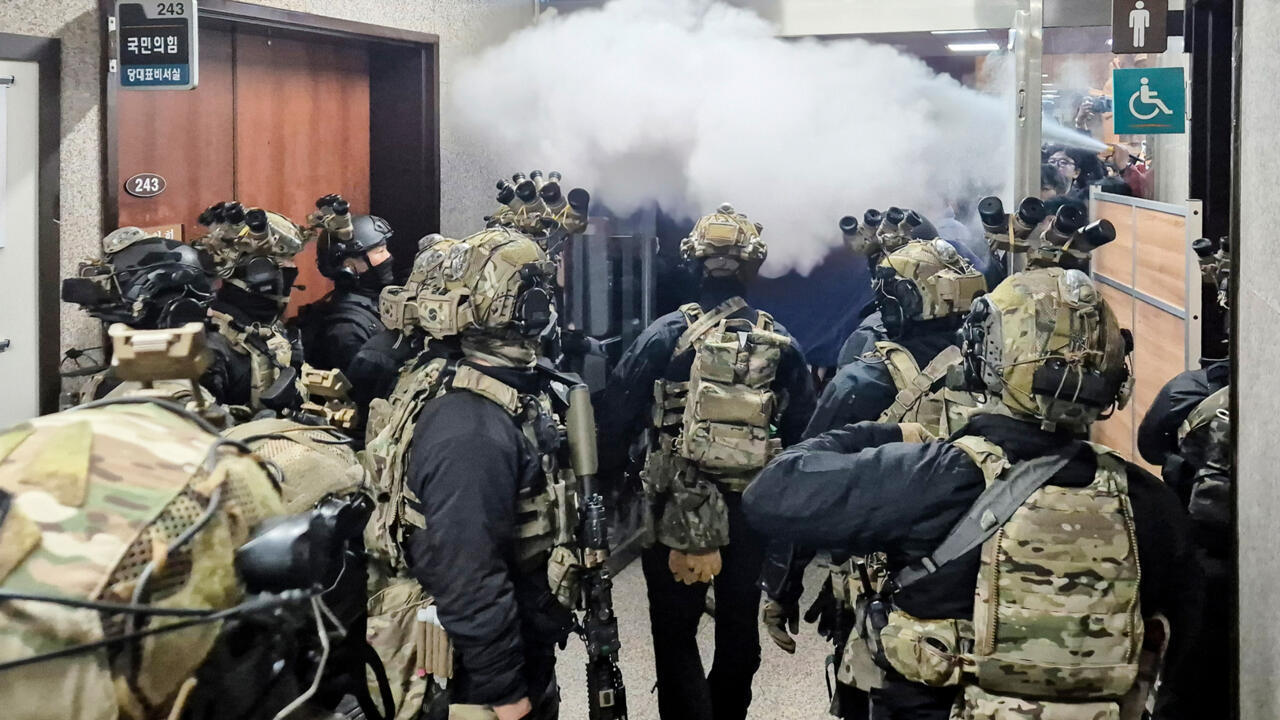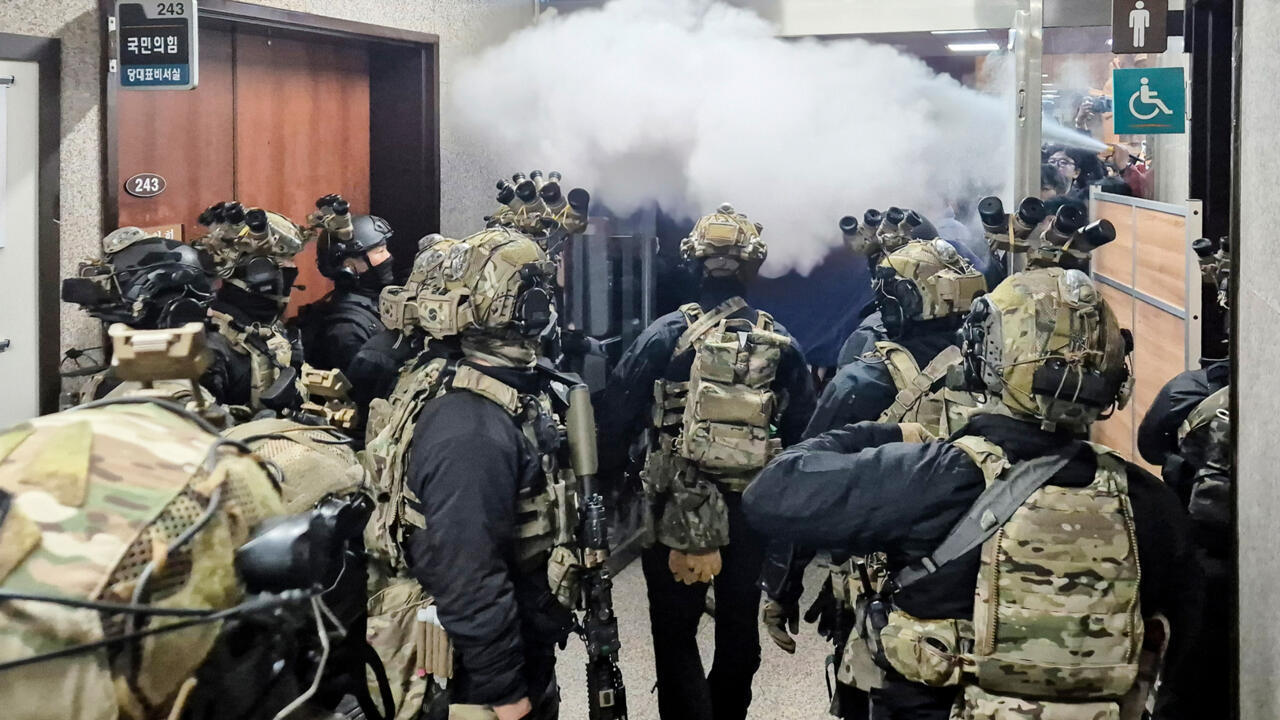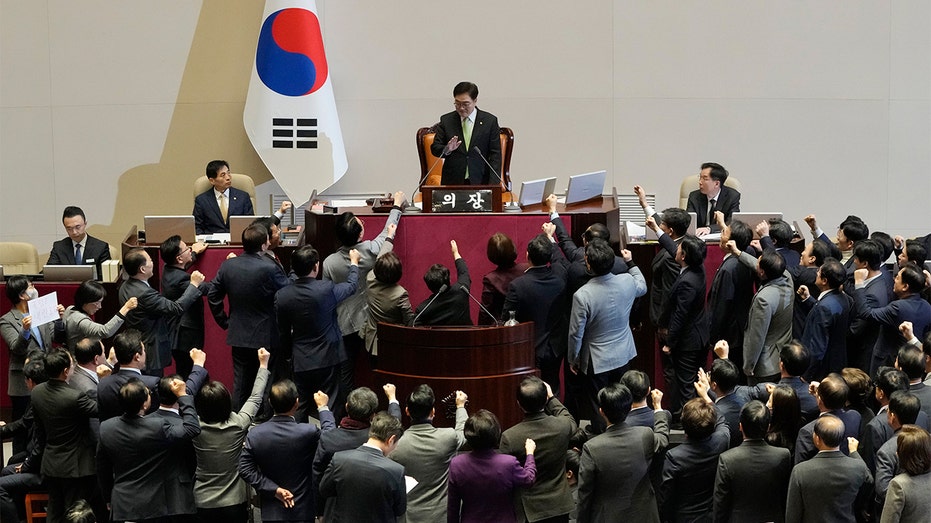
Political Crisis in South Korea: Impeachment of Acting President Han Duck-soo
South Korea is currently grappling with a significant political crisis, witnessing a dramatic escalation as the National Assembly, led by the opposition, voted to impeach acting President Han Duck-soo. This move has reverberated across the nation, sending shockwaves through political circles and raising concerns about stability in the region.
Background of the Impeachment
The impeachment, which occurred on Friday, comes in the wake of President Yoon Suk Yeol’s contentious declaration of martial law earlier this month, followed closely by his own impeachment. The political turmoil began when Yoon imposed martial law for six hours—an unprecedented action that has since been scrutinized for possible abuses of power. Now, Han Duck-soo finds himself stripped of presidential powers and duties as the Constitutional Court assesses whether to enact his permanent removal or restore him to power.
In a decisive vote within the single-chamber National Assembly, Han was impeached with a staggering 192-0—the ruling People Power Party (PPP) lawmakers boycotted the vote, branding it “invalid” and demanding the resignation of Assembly Speaker Woo Won Shik. Despite their outcry and demonstrations, no physical confrontations were reported.
Controversy Surrounding the Procedure
The controversy stems primarily from the impeachment procedure itself. Assembly Speaker Woo determined that only a simple majority was necessary for Han’s impeachment in the 300-member Assembly. This decision conflicts with the PPP’s assertion that a two-thirds majority is required, especially when it comes to impeaching a sitting president. In this instance, the legal framework surrounding the impeachment of an acting president remains ambiguous.
In response to the impeachment vote, Han expressed disappointment but reiterated his respect for the Assembly’s decision. He opted to suspend his responsibilities in hopes of preventing additional chaos and called for a swift resolution from the Constitutional Court, emphasizing the need for political stability.
Interim Leadership Amidst Turmoil
With Han Duck-soo’s impeachment formalized, Deputy Prime Minister and Finance Minister Choi Sang-mok stepped into the role of acting president. His immediate focus has been on strengthening South Korea’s defense posture, especially in light of potential provocations from North Korea. Choi has also reassured international allies, including the United States and Japan, that the nation’s foreign policy will remain consistent despite the domestic upheaval.
The Fallout from Yoon’s Controversial Martial Law
Han Duck-soo’s leadership has been marked by tension, particularly with the Democratic Party which aims to fill vacant seats on the Constitutional Court. This assembly currently lacks three justices, and their appointments are seen as pivotal in addressing President Yoon’s impeachment. Without these justices, there is a significant risk that the Constitutional Court may not have enough votes to remove Yoon from office—requiring support from six out of nine justices.
Yoon’s martial law declaration has led to extensive investigations surrounding its legitimacy. Currently, officials are probing whether Yoon acted unlawfully by declaring martial law in response to what he termed ‘obstructionism’ from the Democratic Party, which controls the Assembly. This unprecedented declaration resulted in chaos and spurred a unanimous vote by lawmakers to revoke the martial law decree.
Legal Challenges and Future Uncertainty
As the political situation unfolds, both Yoon and Han face a precarious legal battle. Prosecutors in South Korea charged former Defense Minister Kim Yong Hyun—an ally of Yoon—accusing him of orchestrating the martial law plan and obstructing justice. This development marks the first in a series of formal charges linked to Yoon’s controversial decree.
The impeachment motion against Han alleges his complicity in Yoon’s actions during the martial law declaration and his failure to advance the restoration of the Constitutional Court’s full strength. This conflict is emblematic of broader legislation struggles between the ruling PPP and the opposition.
A Nation in Crisis
With two leading figures embroiled in impeachment proceedings, South Korea finds itself facing a political void that raises questions about governance and the future stability of the nation. Public confidence is waning, and the economy may also suffer due to this prolonged period of uncertainty. The Constitutional Court now holds immense responsibility as it navigates the complex legal landscape surrounding the fate of both Han Duck-soo and Yoon Suk Yeol.
As South Korea moves forward, the implications of these political crises will not only shape the nation’s governance but may also reverberate across its international relationships. Citizens and allies alike watch closely as the Constitutional Court prepares to deliver a ruling that will determine the next chapter for this politically tumultuous time.


















